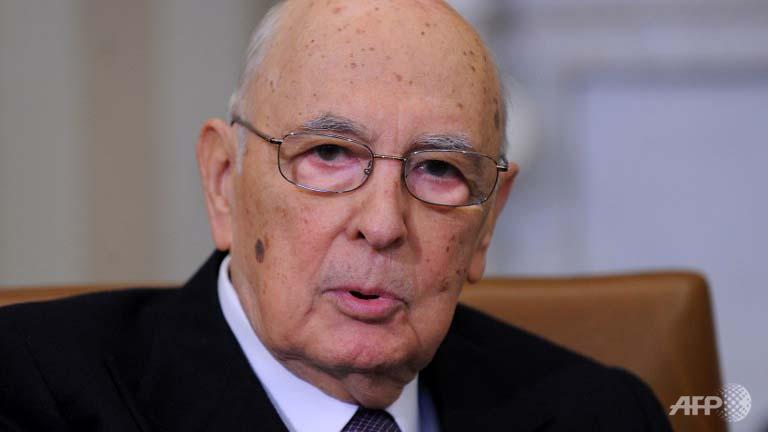Italy president to unveil decision on new government Friday
Italian President Giorgio Napolitano said he will announce on Friday his decision on who will be asked to form a government after inconclusive elections in the austerity-stricken country and amid rising tensions in the eurozone.
"Tomorrow I will present the decision," Napolitano said at the close of two-day talks with all the parties represented in parliament, which aimed to cobble together a parliamentary majority behind a new cabinet.
The centre-left, led by Pier Luigi Bersani, an ex-communist who has promised to stick to outgoing Prime Minister Mario Monti's liberal reforms, won the elections but failed to get enough votes to win a majority in the upper house as well as the lower house.
In a surprise move, Bersani appeared to have reappraised a previous refusal to work together with the centre-right and suggested his party may back a government led by someone other than himself.
"I hope there will be a good solution (to the party
deadlock) and hope I can lend a hand with it. I'm not putting myself forward.
We have a collective responsibility," he said. 
Bersani had previously excluded a grand coalition with his arch-rival Silvio Berlusconi -- a scandal-tainted three-time prime minister who is mixed up in several court cases and has been convicted of tax fraud.
But Bersani said Thursday he could "propose a mechanism" for government if the other parties agree to two conditions -- reforming the complicated electoral system and halving the number of deputies "within a certain timetable".
"We have to do simple things Italians are asking of us, that's the only way to get a government off the ground," he said, citing a reform of the labour market and financial aid for struggling businesses among his party's key proposals.
Berlusconi, whose centre-right coalition came in a very close second in the February 24-25 election, said Thursday: "We are available for a coalition government that can intervene immediately with economic measures that have broad support."
The left has been making overtures to The Five Star Movement, a new protest party that gathered millions of votes from Italians fed up with austerity and the perks enjoyed by politicians. Led by ex-comedian Beppe Grillo, it made major inroads at the February vote.
The Movement -- now the biggest single party in parliament, though still smaller than the two main coalitions -- has repeatedly turned Bersani down.
Grillo met with Napolitano on Thursday, along with the party's two main lawmakers in parliament, deputy Roberta Lombardi and senator Vito Crimi, and asked for a mandate to govern.
Analysts say it is highly unlikely that the anti-establishment party will be asked to form a government since it came third in the elections.
Grillo said in a blog post after his meeting with the president that his party would not vote for any government it does not lead and would only vote in favour of or against individual laws "on a case-by-case basis".
Political observers have said the mandate is likely to go to Bersani, despite the ex-Communist losing popularity after appearing to give away a large lead over the right in the run-up to the elections.
Analysts say the only other option would be a government with non-political figures similar to the one led by Monti, a former European commissioner and economics professor, installed after Berlusconi's ouster in November 2011.
That government could only be temporary and would be charged with dealing with some of Italy's most urgent economic problems and reforming the complex electoral law widely blamed for the current impasse.
Investors have warned that if Italy does not form a new government soon it risks being dragged into the eurozone debt crisis once more, with a spike in its borrowing costs.
There are fears too in European capitals that any new government could ease Monti's budget discipline and his drive for reforms.
Concern has increased in light of the current bitter standoff over a bailout for Cyprus which is sending tremors throughout the eurozone.
Most observers are predicting that, whatever the outcome of this week's talks, there will have to be another general election within a few months or a year at most to resolve the gridlock from the February vote.
AFP

